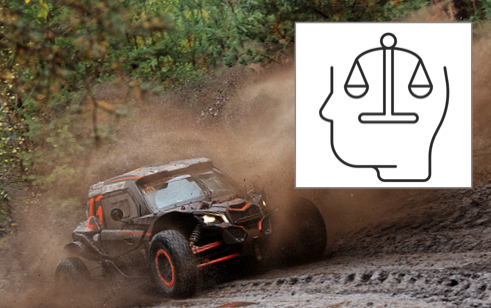“I wish, therefore I am.” We human beings are creatures of desire. Thinking comes second (if at all!). Our desires shape our thoughts way more than our thoughts shape our desires. What we want from the world conditions, filters, and distorts how we perceive it. To put it bluntly, wishful thinking is the most powerful force in the human universe. It lays the ground for all the cognitive biases that mess with our minds.
What’s our best defense against this ever-present menace to rationality? Today, the popular answer is “critical thinking.” This isn’t really a single concept: it’s a cluster of mental procedures to beat back the tyranny of subjective prejudice. Typical components of the critical thinking toolset include:
- Observation: Making the effort to look at the situation or problem at issue.
- Evidence: Demanding the highest quality of evidence for any claim or argument.
- Logic: Identifying inconsistencies, contradictions and errors in reasoning.
- Evaluation: Weighing the merits and deficits of competing perspectives.
- Reflection: Identifying one’s one assumptions, beliefs and values.
Where did this mode of thought come from? The short answer is science. The adventure of western science, fully launched in the seventeenth century, can be seen as a centuries-long battle against wishful thinking. Magic, which in various forms preceded science, is a shameless effort to subordinate reality to desire. Interestingly, Newton — who parented modern physics — retained a secret fascination with the occult. So the transition was by no means neat.
Mental Warfare
Today, the gold standard of scientific integrity can be found in medicine: the placebo-controlled double-blind experiment. This procedure reveals a lot. Each step is designed to erase the effect of wishful thinking: the patient’s wish to be well, the doctor’s wish to cure, the researcher’s wish to be proven right (and get another grant!). The cost and effort of these experiments show just how threatening wishful thinking appears.
Today, far from the field of science, we see a battle played out in the political arena, where the unstoppable force of “what I want” collides with the immovable object of “what is.” Beliefs are paraded as knowledge, and science itself has been thrown on the defensive.
It’s easy to forget that most of what we think we know comes to us second-hand. We all “know” that the earth circles the sun — contrary to the evidence of our own eyes — but how many of us have conducted the astronomical observations and calculations to prove this to ourselves? The unspoken question we should be asking is not: “What do I know?” but “Whom do I believe — and why?” This is key to understanding today’s cultural maelstrom, where facts themselves have been reduced to weapons shaped by whim.
In this environment, the case for critical thinking is surely stronger than ever. We need to place a check on our own wishful thinking, or we’ll be swept away by the currents of ideology and vested interests. That may be true, but it’s only half the picture. Critical thinking has its limits.
Safety Second
If you’ve ever been stopped for speeding, or caught by the camera, you’ve probably attended traffic school and learned the rudiments of defensive driving. These are great skills to own, and they’ve been shown to reduce accidents and mortality on the road. But defensive driving is just that: defensive. It’s ideal for city streets and freeways. It’s not going to get you far in the Monte Carlo Rally or a Formula One Grand Prix. The same can be said of critical thinking. It can keep you out of trouble. It’s unlikely to lead to extraordinary mental achievements.
There are times to hold the mind in check. There are also times to let it rip. We can all benefit from ratcheting up our critical thinking skills — especially in today’s environment. But we also need a different kind of mastery. To overcome the problems we face globally, or just to advance our lives individually, we must expand our creativity. That’s not possible if we’re anxiously watching our own minds, worrying about this bias or that. We have to sometimes turn our thinking loose, risk being foolish, and give our minds free rein. Here, the last thing we need is to curtail our wishes: they’re the engine of creativity. Desire, not necessity, is the mother of invention.
The upshot? Say yes to critical thinking — but be ready to criticize it!
